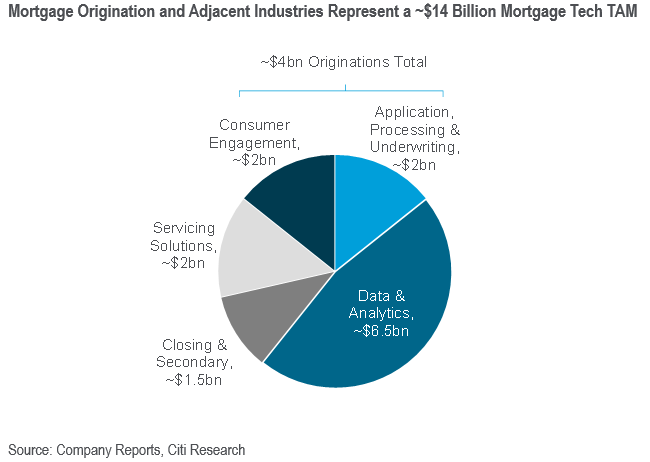 PropTech, or the amalgamation of FinTech and real estate, has been a growing trend recently with the word popping up in conversation more and more often. The ultimate goal of PropTech is to make real estate transactions more efficient, leading to savings for originators, and faster processing and closing times.
PropTech, or the amalgamation of FinTech and real estate, has been a growing trend recently with the word popping up in conversation more and more often. The ultimate goal of PropTech is to make real estate transactions more efficient, leading to savings for originators, and faster processing and closing times.
Knowing this, Citi Global Perspectives & Solutions (Citi GPS), a part of Citi Bank, released a first-of-its-kind report on the emerging PropTech industry as part of its “Home of the Future” series exploring where the trend currently stands and where it may go from here.
The report ultimately found that this segment is ripe for growth. Much like when home prices went online in the 2000s and offered more information to buyers, there are still areas of the homebuying process, such as securing a mortgage and insurance, that are largely walled-off from the general public and are the likely candidates for future PropTech growth.
“The process of buying a house is pretty painful with the large amount of paperwork. And while some frictions in the buying process are healthy, there is a big opportunity to streamline things,” noted Roger Ashworth, Head of U.S. Non-Agency MBS Strategy. “That’s where PropTech comes in – to look for those efficiencies in the market.”

Other important notes the report covers on the move towards a frictionless housing market are:
- Innovation is happening in terms of business models as well, with the rise of home equity investment contracts, iBuyers (a company that uses technology to make an offer on your home instantly) and institutional single-family rentals (SFRs)
- Home equity investment contracts could deliver double-digit returns for co-investors of a property, while at the same time helping consumers tap some of the record-high equity in the housing market
- iBuyers purchase homes for resale and offer a variety of services to home sellers from offer pricing to renovating.
- Institutional single-family rentals (SFRs) make up three percent of the SFR market and are poised for growth.
Click here to view the 52-page report in its entirety.

 theMReport.com Your trusted source for mortgage banking news
theMReport.com Your trusted source for mortgage banking news








